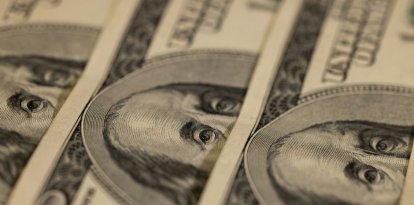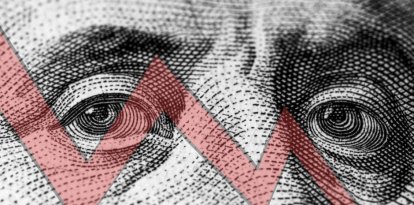A lesson for the world: How did Israel get out of hyperinflation?
Boaz Arad: "The message is that there is no free lunch and at some point the bill comes."

A lesson for the world: How did Israel get out of hyperinflation?
In an interview with Voz Media, Boaz Arad, one of the founders of the New Liberal Movement in Israel and irector of the Ayn Rand Israel Center, talks about the causes of the inflation that is hitting the world today and explains how the Jewish State managed to get out of the dilemma in the 1980s.
The world is suffering from high inflation rates, even in places not used to it, such as the United States and several European countries. It is necessary to understand the causes of this burden that hurts people's pockets, especially those who have the least, in order to implement intelligent policies that can combat it. In this way, it is important to study the examples of countries that were able to solve this problem in the best way, as is the case of Israel, a country which suffered hyperinflation in the 1980s and overcame it in just a few years, managing to maintain stable prices over time.
Arad affirms that the world is suffering the onslaught of inflation because, on the one hand, "governments spend, create large debts and reduce the value of money," while, on the other hand, "in the West, also in the United States, there is a problem of supply of goods."
The libertarian Israeli leader blames radical environmentalist ideas for the rising price of gas and oil. "Europe did not allow searches for oil and gas; banks refused to grant loans to fossil energy projects and turned their backs on the great importance of this sector." He adds that this resulted in "a phenomenon of energy poverty and rising prices."
Arad argues that one of the reasons for the gas shortage is also Russia's brutal attack on Ukraine. However, he says that "the United States amputated its arms and legs" because, despite not being dependent on Russian oil, they decided to impose "all kinds of regulations" that hinder domestic oil and gas production," which in turn led to increases in electricity prices.
Regarding the Israeli hyperinflation of the 1980s, Arad says that it was due to "government spending, the issuance of money and the extension of the defense budget due to the Yom Kippur War" (1973). He adds: "The price index reached 444% [annually] in 1984."
What did Israel do to get out of such a situation? "The government cut public spending and [the financing of] all kinds of non-economic entities," Arad explains. In addition, "a general agreement was reached that brought the left and the right together to move forward with that measure." On the other hand, he clarifies that "Israel received support from the Reagan Administration" in the form of loans and grants.
"Criteria were set to not allow the government to flood the market with money," Arad explains, adding that in Israel there was "great economic centralization" and that "the banks required their clients to buy shares" of the banks themselves, which inevitably led to an economic collapse. "The government closed the stock exchange, stopped the banks from trading shares, nationalized them and then privatized them again." "Citizens were left with the banks' debts and began to pay for them through taxes," he adds.
"At the end of the day," Arad concludes, "the message is that there is no free lunch and at some point the bill comes." He also warns that we must be careful "even in times of prosperity" and that politicians should not be allowed to hand out money as if there were no tomorrow, but should take the opportunity to "tighten, save and reduce debt" in order to "be better able to deal with difficult times."
























